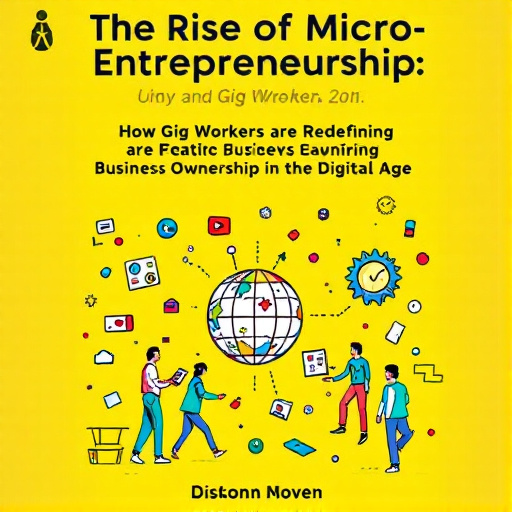Featured Articles
- 7 Best AI-Powered Marketing Platforms Released Since 2019 That Will Supercharge Your Startup Growth
- 9 Proven Psychological Tricks Entrepreneurs Use to Influence Buyers and Skyrocket Sales
- "From Side Hustle to Mainstream: The Surprising Rise of Entrepreneurial Niche Communities"
- The Rise of 'Accidental Entrepreneurs': How Unexpected Events Spark New Business Ventures
- The Rise of Eco-Entrepreneurship: How Green Startups Are Transforming Traditional Industries
9 Proven Psychological Tricks Entrepreneurs Use to Influence Buyers and Skyrocket Sales
9 Proven Psychological Tricks Entrepreneurs Use to Influence Buyers and Skyrocket Sales
9 Proven Psychological Tricks Entrepreneurs Use to Influence Buyers and Skyrocket Sales
1. Leveraging Social Proof
One of the most powerful psychological tactics entrepreneurs use is social proof. This concept is based on the idea that people tend to follow the actions of others when making decisions, especially in uncertain situations. Displaying customer testimonials, reviews, and user counts can reassure potential buyers that a product or service is trustworthy and popular.
Entrepreneurs often showcase endorsements from celebrities or influencers, which can dramatically enhance credibility and influence buying behavior. Social proof reduces the perceived risk and provides validation, encouraging more conversions.
Research by Cialdini (2009) highlights social proof as a key principle of persuasion, demonstrating how it effectively shapes consumer behavior in marketing contexts.
2. Creating Scarcity and Urgency
Scarcity plays a pivotal role in driving sales by tapping into consumers' fear of missing out (FOMO). Entrepreneurs create limited-time offers or display low stock levels to induce urgency. This method nudges buyers to act quickly rather than delay their purchase decisions.
By emphasizing that an opportunity won’t last long, sellers increase the perceived value of the product, encouraging quicker commitment. Time-sensitive discounts or exclusive deals tap into this psychological trigger effectively.
A study published in the Journal of Marketing Research found that scarcity can increase perceived product value and purchase likelihood, underscoring its importance in sales strategies.
3. Utilizing Anchoring to Frame Prices
Anchoring is a psychological effect where individuals rely heavily on the first piece of information they receive when making decisions. Entrepreneurs often use this by presenting a higher-priced option first, making subsequent prices seem more reasonable.
For instance, showing a premium product before a standard one can make the latter appear more affordable, thus increasing the chances of purchase. This comparison frames buyer perception in favor of the seller’s objectives.
Behavioral economists Kahneman and Tversky identified anchoring as a cognitive bias that marketers exploit to guide consumers’ price perceptions and optimize sales.
4. Engaging with Storytelling
Storytelling is a psychological tool entrepreneurs use to connect emotionally with customers. Sharing stories about the brand’s origin, challenges, or customer success creates relatability and trust. This emotional connection increases engagement and loyalty.
Stories make products more memorable by embedding them within meaningful narratives, which influences buyers beyond mere features and benefits. They help humanize the brand and foster a sense of community among consumers.
Research in consumer psychology suggests that stories activate parts of the brain associated with feelings and memory, enhancing persuasion and retention.
5. Applying the Principle of Reciprocity
The reciprocity principle states that people feel indebted to return favors. Entrepreneurs use this by offering free samples, trials, or valuable content upfront, encouraging buyers to reciprocate with purchases.
Providing something of value before asking for a sale creates goodwill and lowers resistance. Consumers often feel compelled to support brands that have given them something useful or enjoyable first.
Cialdini’s work prominently features reciprocity as a fundamental compliance tactic widely used in marketing to increase conversion rates.
6. Using Authority to Build Trust
People tend to trust and follow recommendations from perceived experts or authoritative figures. Entrepreneurs incorporate badges, certifications, or endorsements to leverage this effect.
Displaying expertise or affiliation with reputable organizations reassures buyers about product quality and legitimacy. Authority signals reduce doubt and make the purchase decision easier.
Studies demonstrate that authority figures significantly increase compliance, making this a reliable psychological tool in influencing customer behavior.
7. Simplifying Choices to Reduce Decision Fatigue
Offering too many choices can overwhelm consumers, leading to decision paralysis. Successful entrepreneurs simplify options to help buyers make faster and more confident decisions.
By curating product lines or providing clear recommendations based on user needs, they reduce cognitive load and facilitate smoother sales journeys. Clear, straightforward options improve customer satisfaction and conversion rates.
Research in decision-making psychology highlights the negative impact of too many options, supporting the strategy of choice simplification in sales.
8. Emphasizing Loss Aversion
Loss aversion describes the tendency for people to prefer avoiding losses over acquiring equivalent gains. Entrepreneurs frame choices to highlight what customers stand to lose if they do not act.
For example, emphasizing the disappearance of a discount or the risk of missing out on benefits motivates buyers to complete purchases. This fear of loss can be stronger than the appeal of potential gains.
Behavioral economics research identifies loss aversion as a central factor in consumer decision-making, making it a critical psychological lever in marketing.
9. Harnessing the Power of Consistency
Consistency is a psychological motivator where people strive to align their actions with previous commitments or stated beliefs. Entrepreneurs encourage small initial commitments, like signing up for newsletters, to pave the way for larger purchases.
Once buyers take a minor action, they are more likely to follow through with bigger steps, maintaining consistency in their behavior. This technique builds trust gradually and fosters stronger customer relationships.
Research by psychology experts confirms that commitment and consistency increase the likelihood of compliance and repeat purchasing.



